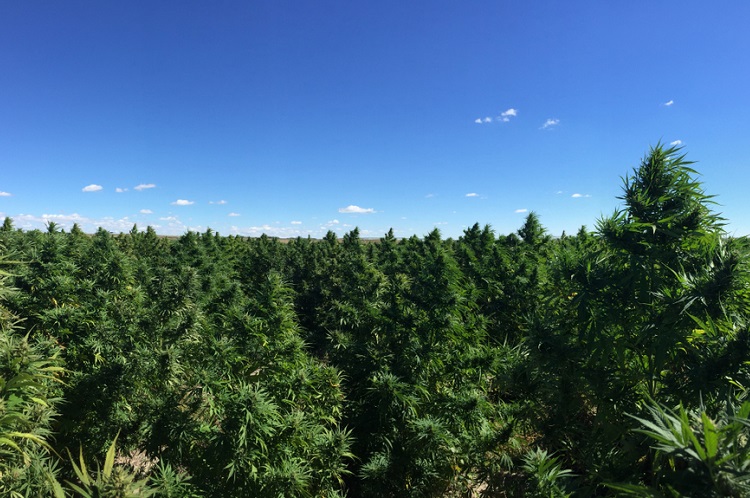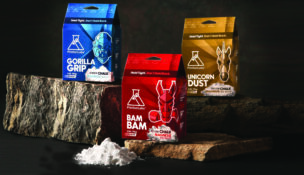Gov. Polis Establishes Way Forward for Colorado Hemp Industry
As of 2018, Colorado has 835 licensed hemp processors and 62,000 growing acres of hemp
Ali Longwell //August 19, 2019//


Gov. Polis Establishes Way Forward for Colorado Hemp Industry
As of 2018, Colorado has 835 licensed hemp processors and 62,000 growing acres of hemp
Ali Longwell //August 19, 2019//

Last week, Colorado Gov. Jared Polis addressed the first-ever Hemp-CBD Supplement Congress, hosted by the American Herbal Products Association, in downtown Denver. The event brought together professionals from across the industry — including farmers, producers, retailers and marketers — to discuss the quickly evolving regulatory and financial landscapes around hemp and CBD following the 2018 Farm Bill.
The 2018 Farm Bill lifted federal restrictions on hemp, so that hemp can be treated the same as any other commodity crop. The bill had far-reaching benefits for the industry and since its passing, hemp-derived CBD products have exploded into the marketplace. You might find CBD lotions, oils, capsules and food products everywhere from Walgreens to the DSW checkout line to gas stations. In 2018, CBD generated nearly $400 million in sales across the nation.
“It’s exploding, people are becoming more aware,” says Chase Terwilliger, CEO of Denver-based Balanced Health Botanicals and CBDistillery. “The 2018 Farm Bill only clarified that CBD and hemp-derived CBD are legal in the U.S. but it just brought that awareness to everyone in the country.”
That doesn’t mean the work is done, however. The industry is still waiting on more clear regulations from the FDA and for more research to be done on additional cannabinoids and their potential.
“There needs to be more regulation to make sure that the products that are presented to the consumer and sold to the consumer are safe,” Terwilliger says. “That’s a big push in our industry is to make sure that that happens. And then what is also coming in the industry is innovation. CBD is the most-common cannabinoid, but there are 115 different cannabinoids in the hemp or marajuana plant. And so we’re going to have a lot of clinical studies done around CBD and figure out what it helps with and what it doesn’t.”
At last week’s Congress, professionals from across the industry discussed both the explosion of the market and the work to be done. Gov. Jared Polis took the keynote stage to address present the work that Colorado has been doing to lead the hemp industry: “You came to the right place to learn about an industry that is very much, even in Colorado, still in our early days, but more mature than in other states.”
Colorado’s Hemp Industry
Colorado has been making moves to be at the forefront of regulation, innovation and research for industrial hemp.
“We’ve seen a big shift at the state level — Colorado, of course, as one of the states leading the way — and then the federal level as well,” Gov. Polis says. “Colorado was already ahead of the country as a whole. Colorado, in fact, accounted for more than half of the nation’s industrial hemp production in 2017. And as of 2018 we have 835 licensed processors,1200 registered land areas, 62-thousand acres growing hemp and ten million indoor square feet of hemp registered.”
Gov. Polis is also aligning the administrations goals around hemp with its other agendas including advancing Colorado ag, environmental stewardship, opportunities in organics and high-margin crops and reducing energy usage and waste.
“Not only do we feel that it’s critical that the hemp industry join Colorado’s farmers and ranchers in advancing this kind of stewardship of our land, but we know that hemp farmers have a leading role to play,” Gov. Polis says.
Gov. Polis also outlined his administration’s goals around hemp in Colorado: Increase the registered acres and square feet in the state by at least 20% and make the hemp registration process easier, reducing the time it takes to issue a license from 30 days to 5 days or less.
Going forward, Gov. Polis says the goal is to treat hemp like any other Colorado agricultural product. “Colorado is no stranger to ag, ag and ranching are two of our strongest historical sectors, and we’ve successfully been able to integrate hemp, as a crop of the past and as a crop of the future for our great state taking its place alongside all of our agricultural products,” he says, adding that hemp will create new high-value ag and diverse market opportunities for farmers across the state
New Colorado Legislation and Programs for Hemp
Polis pointed to several pieces of legislation and programs that have helped the state drive this hemp market forward. “Being a leader has certainly kept us busy,” he says.
This past May, Gov. Polis signed into effect two bills to advance the hemp industry. SB-240, which established rules around businesses engaged in the storage, extraction, processing and manufacturing of hemp. The second, SB-220, aligned Colorado’s existing programs with the new federal regulations from the 2018 Farm Bill.
Also in May, the state Department of Agriculture launched its Colorado Hemp Advancement and Management Plan (CHAMP), which has eight focus groups focused on different steps on the hemp supply chain — research and development and seed, cultivation, testing, transportation, processing, manufacturing, marketing and banking and insurance.
“It is a project designed to really formulate Colorado’s comprehensive blueprint for leadership in the hemp economy,” Gov. Polis says, adding that it will establish “a strong market for Colorado’s agricultural communities by identifying opportunities in policies and markets, establishing industry guidelines to empower entrepreneurs, uncovering gaps, illustrating research and advancement.”
CHAMP was created in collaboration with 174 stakeholders, including Colorado’s ten state agencies that have to do with industrial hemp, the governor’s office with Ean Seeb as its cannabis policy advisor, local governments, the Southern Ute and Ute Mountain tribes and Colorado universities.
Additional programs include the Department of Agriculture’s seed certification program for hemp, which is operated in partnership with Colorado State University (CSU). The program ensures that hemp seeds when grown in diverse conditions test below the .03% THC threshold outlined in the farm bill. Thirteen seed varieties have been verified thus far, with eight more currently under observation.
Gov. Polis also highlighted the state’s efforts to invest in cannabis research, which includes CBD. The state recently expanded the footprint of the Institute of Cannabis Research at CSU Pueblo and is exploring private-sector opportunities for research on these topics.
“As our momentum continues to build, we’re excited to continue leading, innovating, and yes also sharing what we learned along the way, just as we learned from others,” Gov. Polis says.























